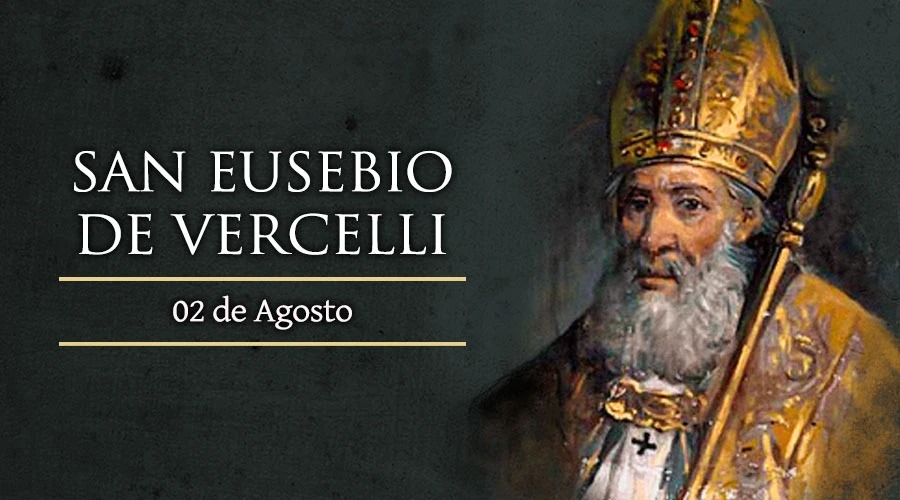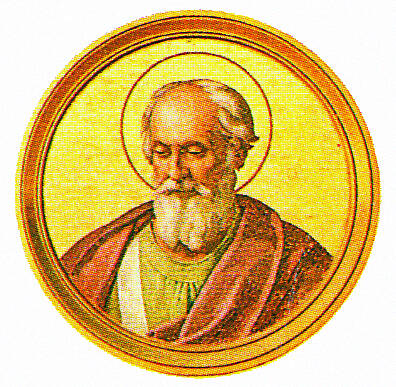What saint is celebrated today, August 2: the Catholic calendar of saints and their religious significance

This Saturday, the Catholic Church commemorates the free memory of Saint Eusebius of Vercelli , a prominent figure of the 4th century who was the first bishop of Vercelli and a staunch defender of the Christian faith against the Arian heresy.
His life and work are remembered today within the framework of the Catholic calendar of saints, during the seventeenth week of Ordinary Time .
Who was Saint Eusebius of Vercelli? Saint Eusebius was born in Sardinia at the beginning of the 4th century and later joined the Roman clergy. In 345, he was elected bishop of Vercelli, in northern Italy. During his episcopate, he promoted monastic life in his diocese and played a prominent role in the spread of Christianity through preaching.
His staunch opposition to Arianism—a theological movement that denied the divinity of Christ—led to numerous persecutions. Emperor Constantius exiled him for his defense of orthodox doctrine. Despite his exile, Eusebius continued to work tirelessly for the restoration of the Catholic faith. He died in Vercelli in 371.

Saint Eusebius of Vercelli Photo: ACIPRENSA
In addition to the memorial of Saint Eusebius, today's liturgy offers reflections on justice, freedom, and the witness of faith. The first reading (Leviticus 25:8-17) addresses the Jubilee Year, a time when debts are forgiven and property is returned to its original owners , highlighting the principle of social equity established by the Mosaic Law.
The Responsorial Psalm (Psalm 67) is an invocation of divine blessing upon all peoples, asking that God rule with justice and make his salvation known to all the earth.
In today's Gospel (Matthew 14:1-12), the execution of John the Baptist is recounted, a narrative that recalls the cost of prophetic witness and fidelity to the truth, even in the face of political power and persecution.
First ReadingReading from the Book of Leviticus (Lev 25:8-17) The Lord spoke to Moses on Mount Sinai:
«Recount seven weeks of years, seven times seven, so that seven weeks of years will add up to forty-nine years.
On the tenth day of the seventh month you shall sound the trumpet; on the Day of Atonement you shall sound the trumpet throughout all your land.
You shall declare the fiftieth year holy and proclaim it throughout the land, liberating all its inhabitants. It shall be a jubilee for you: each one shall recover his property and return to his family.
The fiftieth year will be a jubilee year for you: you shall not sow, nor reap the tender shoots, nor gather grapes from the uncultivated vines. For it is a jubilee year, which shall be holy to you. You shall eat whatever the field yields.
In this jubilee year everyone will recover their property.
Whether you sell or buy anything from your neighbor, let no one wrong his brother. Whatever you buy from your neighbor (be it according to the number of years after the Jubilee).
He will charge you according to the number of harvests remaining: the more years remaining, the higher the price; the fewer, the lower the price. Because what he sells you is the number of harvests.
Let no one harm his neighbor. And fear your God, for I am the Lord, your God.

Saint Eusebius was Pope for a few months, from April 309. Photo: Wikipedia
R. Oh God, let the nations praise you,
may all peoples praise you.
May God have mercy and bless us,
shine your face upon us;
Let the earth know your ways,
all peoples your salvation.
R. Oh God, let the nations praise you,
may all peoples praise you.
Let the nations sing for joy,
because you rule the world with justice
and you rule the nations of the earth.
R. Oh God, let the nations praise you,
may all peoples praise you.
The earth has yielded its fruit,
the Lord our God blesses us.
Let them fear him to the ends of the earth.
R. Oh God, let the nations praise you,
may all peoples praise you.
Gospel Reading from the Holy Gospel according to Saint Matthew (Mt 14:1-12) At that time, Herod the tetrarch heard what was said about Jesus and said to his courtiers:
"That is John the Baptist, who has risen from the dead, and that is why miraculous powers are at work in him."
For Herod had ordered John arrested and bound in prison because of Herodias, his brother Philip's wife; for John had told him it was not lawful for him to live with her.
He wanted to have him killed, but he was afraid of the people, who considered him a prophet.
On Herod's birthday, the daughter of Herodias danced in front of everyone and Herod liked her so much that he swore to give her whatever she asked for.
She, prompted by her mother, said to him:
"Give me right now on a platter the head of John the Baptist."
The king was sorry, but, because of the oath and the guests, he ordered that it be given to her, and he had John beheaded in prison.
They brought the head on a platter, gave it to the young woman, and she took it to her mother.
His disciples picked up the body, buried it, and went to tell Jesus.
Religious meaning of the saint's calendar The commemoration of Saint Eusebius of Vercelli invites the faithful to reflect on the importance of commitment to the truth and fidelity to the principles of the Christian faith, even in contexts of adversity. His life is seen as an example of doctrinal firmness and pastoral service.
*This content was rewritten with the assistance of artificial intelligence, based on information from the Colombian Episcopal Conference.
More news in EL TIEMPOeltiempo




